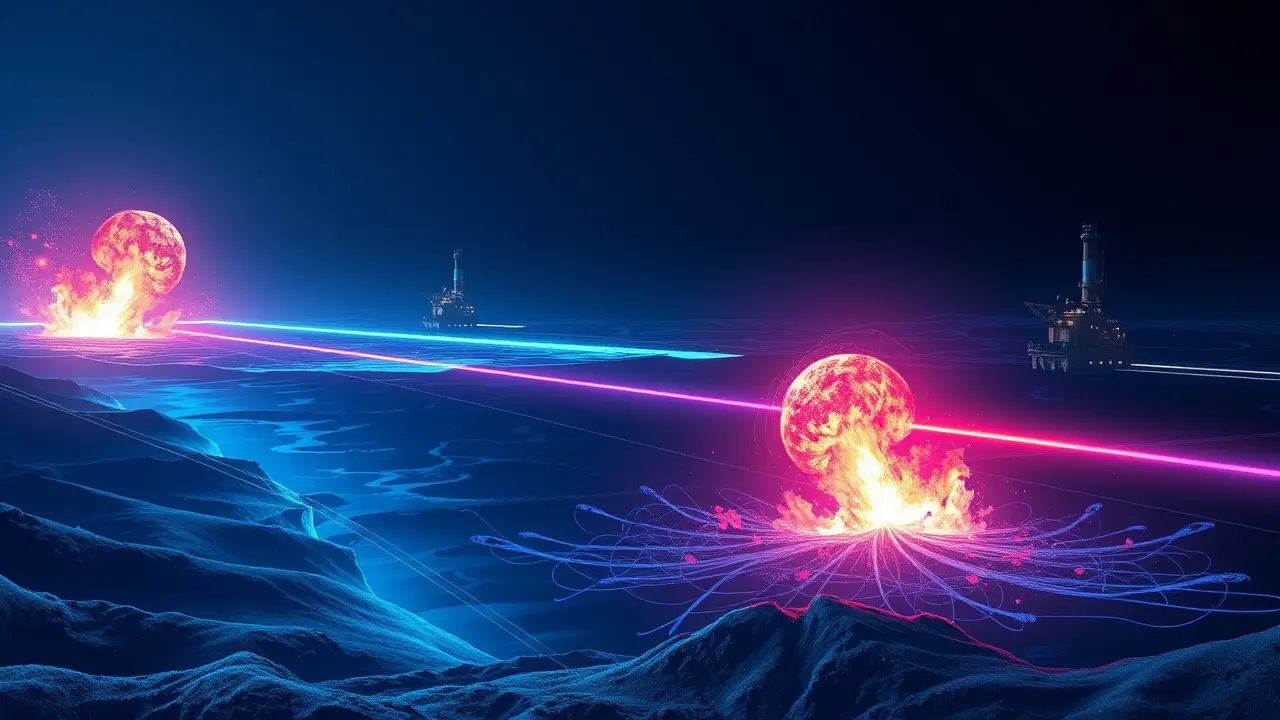
Politicscorruption & scandals
Suspect Accuses Italy of Pressuring Nord Stream Confession.
OL
Oliver Scott
4 hours ago7 min read
The geopolitical landscape surrounding the Nord Stream pipeline attacks of September 2022, a series of underwater explosions that crippled a critical artery of European energy infrastructure, has been jolted by a dramatic new allegation from a central figure. Serhiy Kuznetsov, a man currently wanted by German federal authorities in connection with the meticulously planned sabotage operation that sent methane plumes bubbling to the surface of the Baltic Sea, has launched a counter-accusation of profound gravity.Through his legal representatives, Kuznetsov claims that the Italian government, a key NATO ally, has engaged in a covert campaign of intense pressure aimed at coercing a confession from him. This is not a minor procedural complaint; it is a direct challenge to the integrity of the multinational investigation and suggests the involvement of state-level actors in what Germany and its Scandinavian partners have treated as a grave act of international terrorism.The implications are staggering, potentially pointing to a clandestine intelligence operation or a geopolitical gambit far removed from the initial public narrative. If substantiated, these claims could severely strain diplomatic relations within the European Union and NATO, alliances already tested by the war in Ukraine, which forms the essential backdrop to this entire saga.The Nord Stream pipelines, Nord Stream 1 and the never-commissioned Nord Stream 2, were long-standing symbols of German-Russian economic interdependence, and their deliberate destruction was widely interpreted as a strategic blow against Moscow's energy leverage over Europe. The investigation itself has been a labyrinthine affair, with competing theories pointing fingers at pro-Ukrainian groups, Russian false-flag operations, or even state-sponsored actors from other nations.Kuznetsov’s allegation against Italy injects a wholly new and unpredictable variable into this high-stakes equation. It raises immediate and troubling questions: What possible motive would Rome have to illicitly influence a confession? Is this an attempt to steer the narrative toward a specific culprit, or to obscure the involvement of another? Risk analysts are now forced to model scenarios where the investigation’s findings are irrevocably tainted by claims of political interference, potentially undermining any future prosecution and deepening public distrust.The situation echoes historical precedents where major investigations into acts of international sabotage became entangled in the web of statecraft, where truth became a secondary objective to geopolitical advantage. For Germany, which has borne the primary investigative burden, this development represents a nightmare scenario, threatening to turn a complex criminal probe into a diplomatic minefield. The coming weeks will be critical, as Berlin and Rome will be compelled to address these claims publicly, with the credibility of Western institutions and the pursuit of accountability for one of the most significant covert infrastructure attacks in modern history hanging in the balance.
#featured
#Nord Stream
#sabotage
#investigation
#Germany
#Italy
#confession
#Serhiy Kuznetsov
#pressure
#international relations
Stay Informed. Act Smarter.
Get weekly highlights, major headlines, and expert insights — then put your knowledge to work in our live prediction markets.
© 2025 Outpoll Service LTD. All rights reserved.